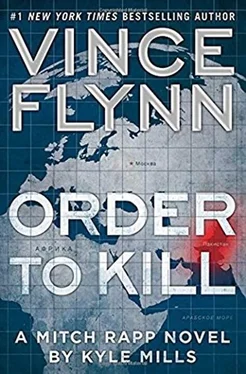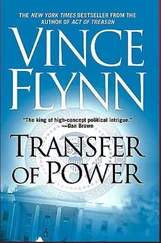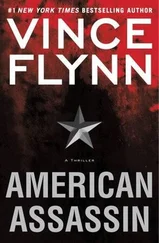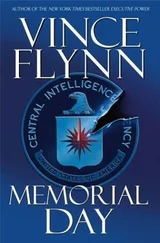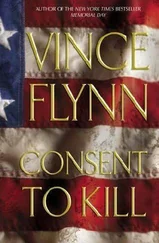He dove left just as the dull snap of a silenced pistol sounded. The round smashed into his motorcycle helmet with a deafening crash, jerking his head to the side. There was no time to worry about whether he was injured-or maybe even dead and just not realizing it yet-so instead he rolled with the force of the impact and came back to his feet. Miraculously, his body and mind were still working in concert and he began sprinting toward a stand-alone office just beyond the line that separated sunlight from shadow. Out of the corner of his eye, he saw an armed man walking calmly toward him. Not Middle Eastern and not like any terrorist he’d ever run into. No, this shooter wasn’t just Caucasian; he was wearing a really nice suit.
Just before reaching the door, Coleman altered his trajectory and dove through a window. On the back wall, a puff of dust sprang up where the gunman’s round penetrated. Judging by the position of the impact, his aim was once again dead-on. Had Coleman not changed course, the bullet would have hit him right between the shoulder blades.
The former SEAL found himself rolling through a carpet of broken glass with virtually no control. By the time he slammed into what was left of an old desk, his torso, hands, and arms were a spiderweb of oozing cuts.
He pressed his back against the wood and aimed through the doorway, spotting the man coming at him in a sideways run to minimize his profile. Coleman suffered a rare moment of confusion at the speed of his opponent’s approach. Rapp was the fastest guy he’d ever seen in person and this son of a bitch was noticeably faster.
It was impossible to line up a reliable shot, so he calculated that his best option was to conserve his ammo. Against a lesser opponent, he might have gone for a few near misses in an attempt to score a psychological blow. This asshole wouldn’t be so easily intimidated.
Coleman slid away from the desk through the loose glass just as the man opened up again. Three rounds hit right where he’d been a split second before, grouping in a circle just over an inch in diameter. It was an incredible display of marksmanship. Even with time to aim, it would have been impressive. But from a full run? Bullshit. No one could do that.
Coleman yanked his foot away from the open door but was just a fraction too slow. The shooter had anticipated his move and a bullet tore through the middle of his right calf, spraying blood across the floor.
Certain that the next few rounds were going to come through the flimsy plywood wall next to him, Colman pushed himself into a standing position on his wounded leg and fired four times in quick succession.
The move was obviously unexpected and the shooter didn’t have time to recalibrate his aim. Instead, he grabbed a metal pillar and swung around it, changing direction ninety degrees without any loss of speed. Less than a second later, he had disappeared behind an enormous machine set up in front of an old crane.
Coleman expected the men at the back of the building to open up again, but they’d lost interest. The sudden silence seemed absolute.
“Do you have eyes on me, Mitch?” Coleman said, in hopes that his radio was still operational. “The office. One tango to the east. The others are still working on the crate. Do you copy?”
No response.
He grabbed a chunk of two-by-four off the desk and threw it through the window in front of him. The glass shattered, leaving him a clearer view as he sighted over his Sig. There was no movement near the machine the shooter had disappeared behind. The only evidence that he’d ever existed was the widely spaced footprints in the dust.
“Mitch. Do you copy?”
Again, nothing.
He could feel a slight shaking in his hands and knew it wasn’t just the sprint to his current position or the leg injury. It was fear. There was something about this opponent that was different from those he’d faced in the past.
Combat was the one activity no human ever did half-assed. Situations like this were full-gas until you either won or died. But Coleman had a gnawing suspicion that this guy wasn’t really trying.
He reached up with his free hand and ripped off his motorcycle helmet, further improving his vision. The side was caved in and he could see what was left of his radio dangling from it. That explained the silence from Rapp.
Without the helmet to contain it, blood began flowing down his neck and shoulder. The calf was a hell of a lot worse, he knew, but he didn’t dare look.
Time was working against him. The heat had been a problem already, but blood loss would magnify its effect. Coleman was already incapable of running, and in a few minutes his mind would start to dull.
For the first time in his career, he could see no path that didn’t end with him dead.
RAPP swept his rifle left, sighting through the scope and finally settling on the image of Scott Coleman. His helmet was off and he was bleeding badly from the side of his head. The seriousness of the injury was impossible to determine, though. Head wounds tended to bleed profusely and when mixed with sweat could look a lot worse than they were.
He also seemed to be favoring his right leg, suggesting that he’d either been hit or injured when he’d gone through the window. What concerned Rapp most, though, was that he looked scared. It was an emotion that Coleman had never openly displayed in their years working together.
The former SEAL was pinned down in a wrecked office near the center of the building. The bottom four feet of the enclosure was constructed from plywood, with windows above, running a full three hundred sixty degrees. The ceiling was low-probably no more than seven feet, with a few damaged acoustic tiles hanging lower.
Whoever Coleman was fighting had managed to stay out of Rapp’s line of sight. Based on the former SEAL’s movements, Rapp’s best guess was it was one man, that he was fast as hell, and that he’d taken cover along the east wall.
A shot rang out from the street below and Rapp glanced around the edge of his scope to make sure it wasn’t anything he needed to worry about.
The sound of gunfire in the warehouse had sent the people on the crowded road into disarray. A few cops and soldiers had arrived on the scene and one had fired into the air in an effort to get the evacuation of the area under control. Predictably, it had the opposite effect.
When Rapp returned to his optics, he eased the rifle a little farther left, focusing on the same massive industrial machine that Coleman was locked onto. One edge of it was obscured and he assumed that the shooter had slipped behind it there. If he reappeared on the south side, Rapp would be able to line up on him. If he tried to come out on the north side, Coleman would have a clear shot.
“Mitch, I’ve got two tangos leaving through the back of the building,” Maslick said over his earpiece. “Both are on foot and not carrying anything other than a small backpack.”
“Copy that,” Rapp said, scanning the mast of a crane that rose up behind the machine. “Hold your position. Don’t follow.”
“Affirmative.”
Maslick’s chopper was hovering just off the south side of the building and wasn’t getting too much negative attention yet. The Pakistanis would assume that the Russian-built Mil Mi-17 was being operated by the military, but the illusion wouldn’t last. When they couldn’t raise it on the radio, the local commanders would figure out that it wasn’t one of theirs. Hopefully, the backstabbing dysfunction the local armed forces were known for would delay that epiphany a few more minutes.
Rapp kept exploring the crane mast through his scope, finally coming to its junction with a steel track that ran the length of the ceiling from north to south. He felt a dull surge of adrenaline when he saw that it passed directly over the office at a height of about twenty feet.
Читать дальше
